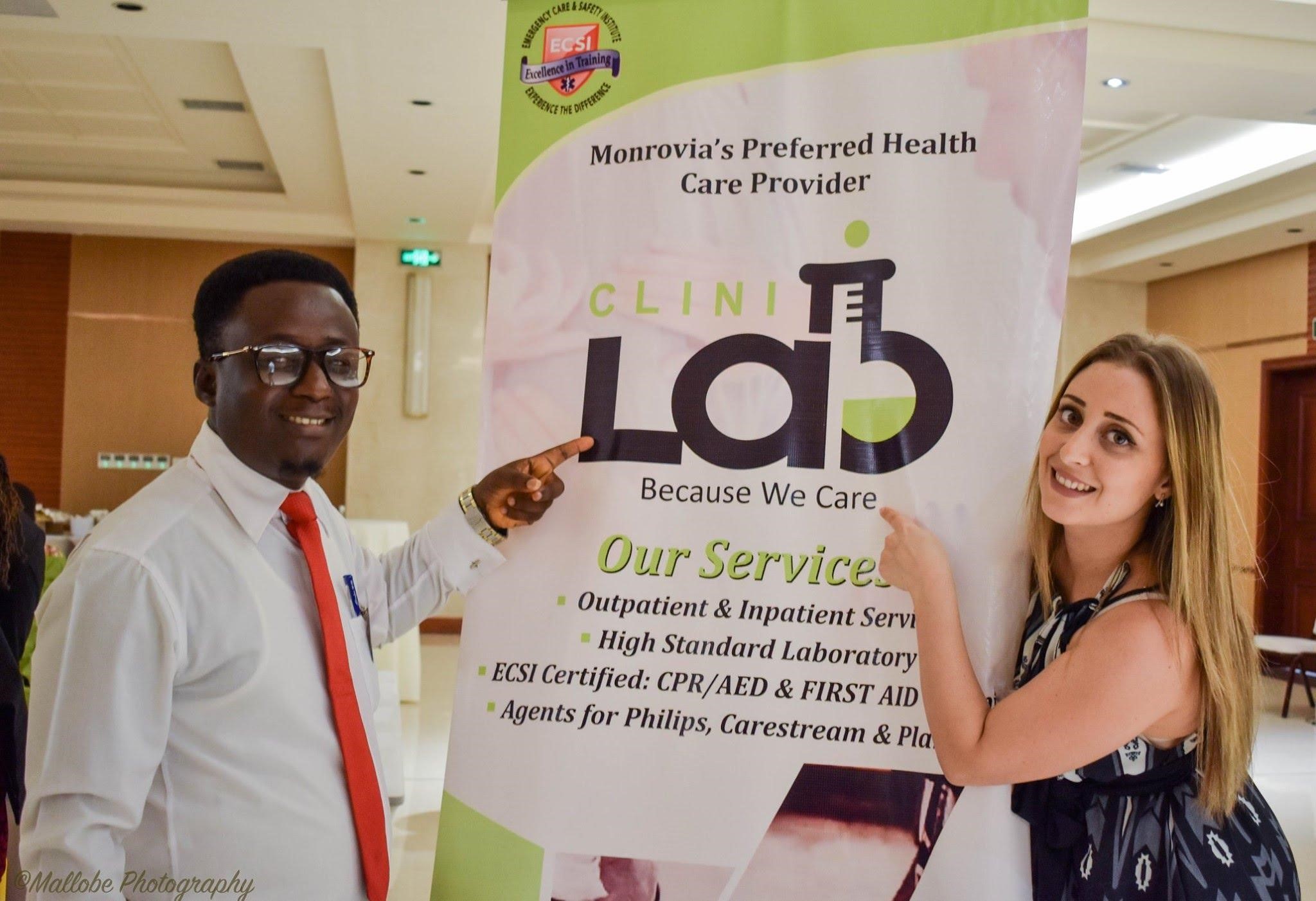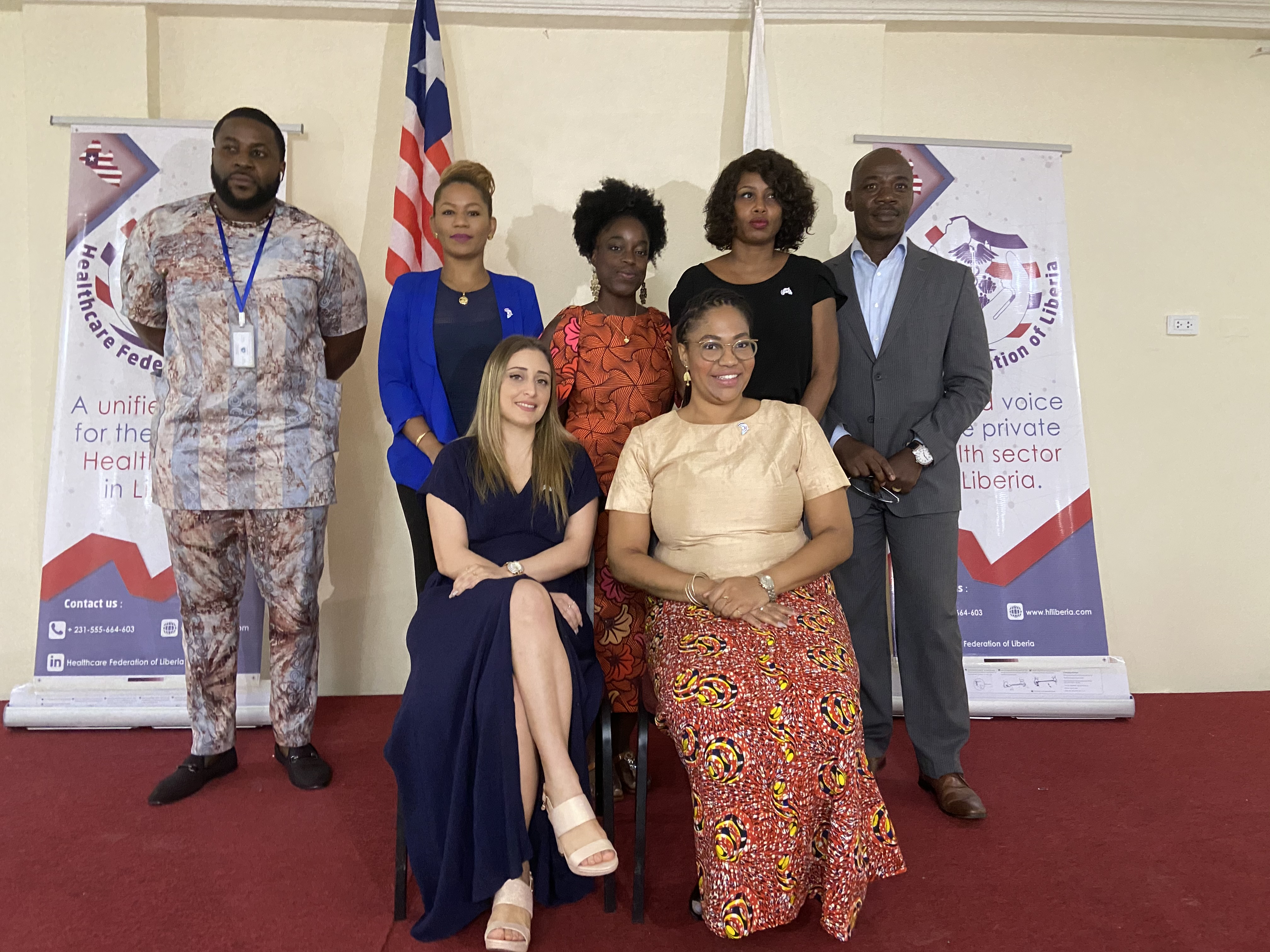
Member Spotlight: Palladium Promotes Better Healthcare in Liberia
March 3, 2021 | By Anna Gerrad
Ever since Hiba Khoury was a teenager in Monrovia, she knew she wanted to work in healthcare. “My parents were born in Liberia, as was I,” she explained. “Once I had my own children, it became really important to me to help strengthen the health sector and build a better future for all of Liberia’s children.”
Going it Alone
Khoury dreamed of opening a private diagnostic firm in Monrovia, Liberia’s capital. But this ambition brought with it a host of challenges. For one, Khoury found it impossible to borrow start-up funds from Monrovia’s banks. To overcome this obstacle, Khoury struck a deal with her former employer to loan her lab equipment; she borrowed the cash she needed to rent the space and hire staff from friends and family. Then, in her first year of operation, a shortage of distilled water impaired her ability to run diagnostic tests. After scanning the local market for potential private-sector partners that could provide distilled water, she faced the reality that many small-to-medium-sized enterprises confront in markets like Monrovia: she had to solve the problem alone. Collaboration among non-competing health businesses was not an option she could pursue.

Hiba Khoury with a CliniLab employee (credit: Africa Health Business)
In the end, Khoury sourced the water by purchasing a new distiller, paid back the money she had borrowed from friends and family, and continued to develop her firm, CliniLab, into a thriving business. CliniLab now includes a primary care clinic and serves as an agent for InterMedics medical equipment and a supplier of Philips radiology equipment to the wider health market. But to get to where she is today, Khoury had to think creatively about ways to solve the challenges that she faced—and, unfortunately, her story isn’t unique. Many small-to-medium-sized enterprises across low- and middle-income countries struggle with marketplace zero-sum thinking—where one person’s gain is another’s loss—that hinders private health sector growth. Rather than work together to build health systems that offer patients better access to value-based care, potential partners remain fearful and distrusting of new market entrants and of each other. With no neutral party to help bring complementary businesses together under a common vision, everyone is faced with going it alone.
A Unifying Body for All
In Liberia, this situation is beginning to change. In January 2020, the newly formed private sector Healthcare Federation of Liberia (HFL) was launched. A month later, the HFL elected its board of directors and held its first ministerial stakeholder forum. Sitting on HFL’s board as vice-chair is Hiba.
The HFL was launched following an assessment of Liberia’s private health sector, conducted as part of the Palladium-led and USAID-funded Health Policy Plus (HP+) project. The assessment identified the need for a unifying body and opportunities to improve the private health system, create a framework for collaboration with the government, and better leverage the private sector for improved health outcomes. One of the HFL’s first orders of business is to tackle the lack of access to private capital for health businesses, particularly to support those currently struggling to offer family planning services—a move that could help strengthen the provision of family planning services in the country. With HP+ support, the HFL will begin offering financial management skills-building courses to small-to-medium-sized health enterprises and partner with Access Bank to support the development of loan products specifically for the health sector.

The newly elected board of the Healthcare Federation of Liberia (credit: HP+)
Improving Health, Together
For Khoury, challenges to being a small business owner in Liberia still remain. Last year, her clinic hired an OB-GYN to provide family planning services, but, due to severe shortages of imported family planning commodities being available to the private sector, they have been unable to provide clients with anything beyond oral contraceptives. But, this time, Khoury doesn’t have to go it alone. The HFL is working to strengthen the private health market to improve access to high-quality healthcare. In Monrovia, where 80 percent of the nation’s private health facilities reside, delivering value to patients through a coordinated private sector is both a winning business strategy and a critical component to improving the health of Liberian families.
This story originally appeared on Medium.